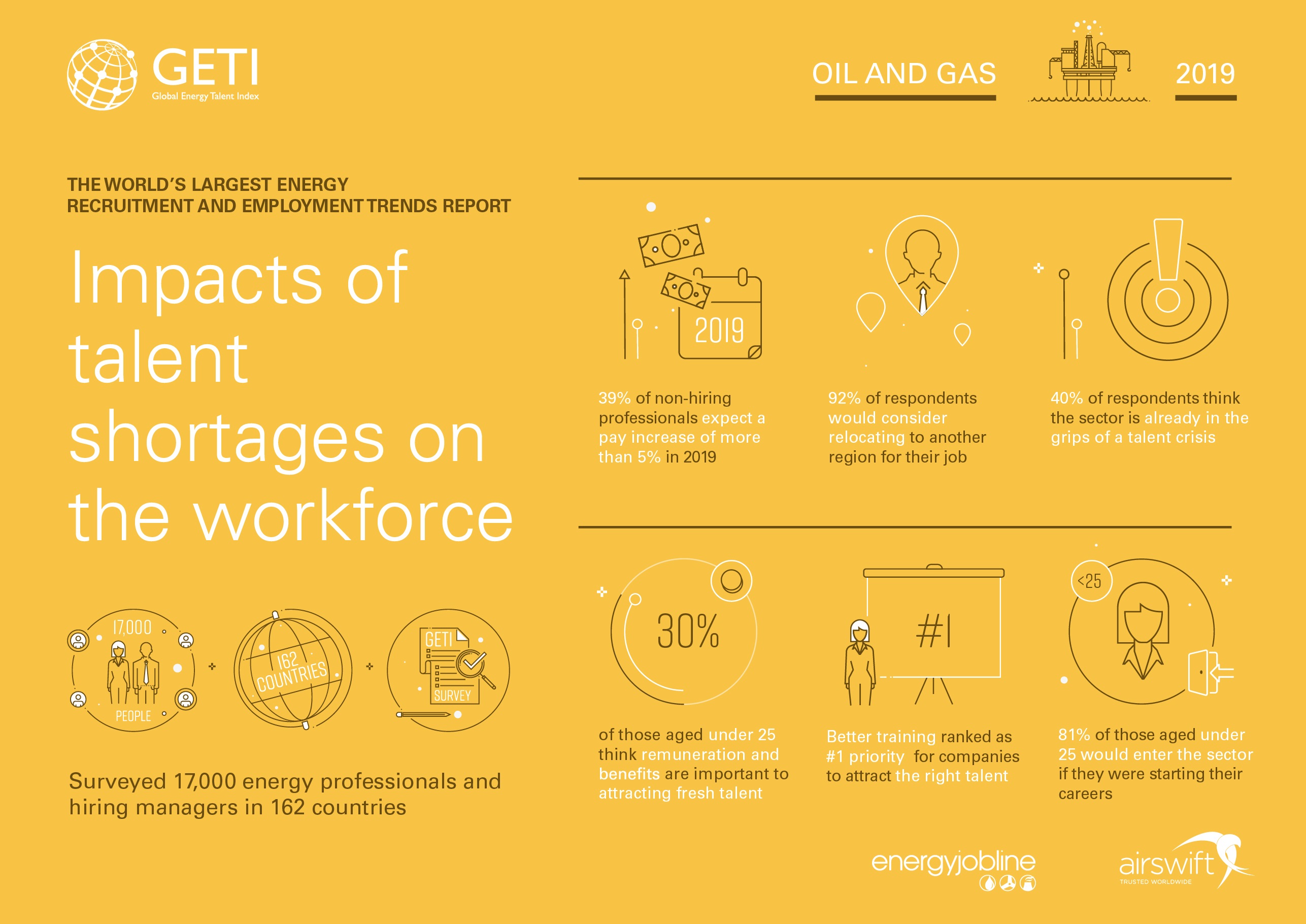The third annual Global Energy Talent Index (GETI) revealed that 48 per cent of oil and gas professionals are concerned about an impending talent emergency
The report by Airswift, a provider of workforce solutions for the energy sector, and Energy Jobline, a job site for the energy and engineering industries, indicated that oil and gas businesses must continue evolving their approach to attracting and recruiting talent.
The survey also found that 81 per cent of people aged 25 and under remain enthusiastic about a career in the oil and gas industry and about 40 per cent of survey respondents believed the sector is already in the grips of a crisis, with another 28 per cent expecting one to hit within the next five years.
The GETI report also revealed salary and mobility trends, which showed that 41 per cent of non-hiring professionals reported an increase in pay over the past 12 months, with 21 per cent citing an increase of more than 5 per cent. Around 65 per cent of non-hiring professionals anticipate further pay increases in 2019. Hiring managers share their optimism, with 63 per cent expecting an increase.
 It added that renewables remain the biggest source of the talent competition, with 42 per cent of those open to switching sectors attracted to the industry.
It added that renewables remain the biggest source of the talent competition, with 42 per cent of those open to switching sectors attracted to the industry.
Janette Marx, Chief Executive Officer at Airswift, says: “Having cut graduate schemes, apprenticeships and training during the downturn, the sector is playing catch-up. But it’s making good progress. And, most importantly, companies now realise that no matter what happens economically, they need to consistently invest in their talent strategies.”
Hannah Peet, Managing Director at Energy Jobline, says: “Competition between sectors remains as fierce as ever, but oil and gas employers are well set to succeed. The trick now is to respond by working to provide individuals with more opportunities to grow their careers, travel and work with new technologies.”
About 17,000 energy professionals and hiring managers were surveyed in 162 countries across five industry sub-sectors such as oil and gas, renewables, power, nuclear and petrochemicals.





